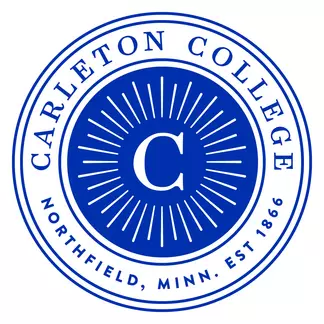
Fostering Interdisciplinary or Integrative Learning
Conceptual Framework for Integrative Learning
In 2012, thirty-two faculty and staff in math and sciences came together during a three-day workshop to construct a conceptual framework to help us understand and assess ways to enhance integrative learning at Carleton with the goal of helping our students become innovative problem solvers (Fig. 1). The framework identifies aspects of a learning environment that promote student abilities in four areas: habits of mind, self-efficacy, relevant knowledge and skills, and interpersonal skills.
Assessing Integrative Learning
Modeled after the IDEA Center student ratings of instruction , the Science Education Resource Center (SERC) at Carleton developed a paired learning environment survey aimed at better understanding how faculty are fostering learning environments that are conducive to integrative learning and encourage students to innovate in their problem-solving abilities. Read more...
Interdisciplinary and Integrative Support Structures
Carleton has a number of programs and initiatives to support students and faculty in interdisciplinary and integrative learning.
The Center for Civic and Community Engagement (CCCE) has dedicated faculty and staff who help connect students and faculty with community partners for extra-curricular and co-curricular activities in areas of Political Engagement, Education, Health and Well-being, and in Energy and the Environment.
Interdisciplinary Majors and Concentrations. In addition to the major, Carleton has a long tradition of offering concentrations. A concentration is an integrated interdisciplinary program of study that provides structure for exploring fields that do not have a single methodological or content base in a traditional discipline. Some of these concentrations have evolved into majors including Environmental Studies and Women's and Gender Studies.
Linked Courses and Team Teaching. Carleton supports faculty from different disciplines to come together to team-teach a course, or offer courses that are linked in a variety of ways. Linked courses typically involve two (or more) courses that share a common theme or goal for student learning in some aspect of the course. A recent example includes the linking of PSYCH 260 (Health Psychology), BIOL 310 (Immunology), and CS 342 (Mobile Application Development). This project was spread over three terms where students in PSYCH 260 worked with the Northfield School District during the fall term to learn how students perceive and learn from various health-related apps that the school district is using as part of an "iPads across the curriculum" program. During the following winter term, students in BIOL 310 checked the scientific veracity of these apps and worked with teachers to learn what health needs they wanted to address in their courses that are not being met by the current suite of health-related apps. Finally, students in CS 342 worked with teachers and the information collected by students in PSYCH 260 and BIOL 310 to customize or create new apps that met their needs.

![[creative commons]](/images/creativecommons_16.png)